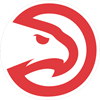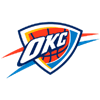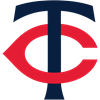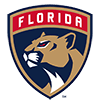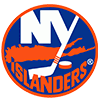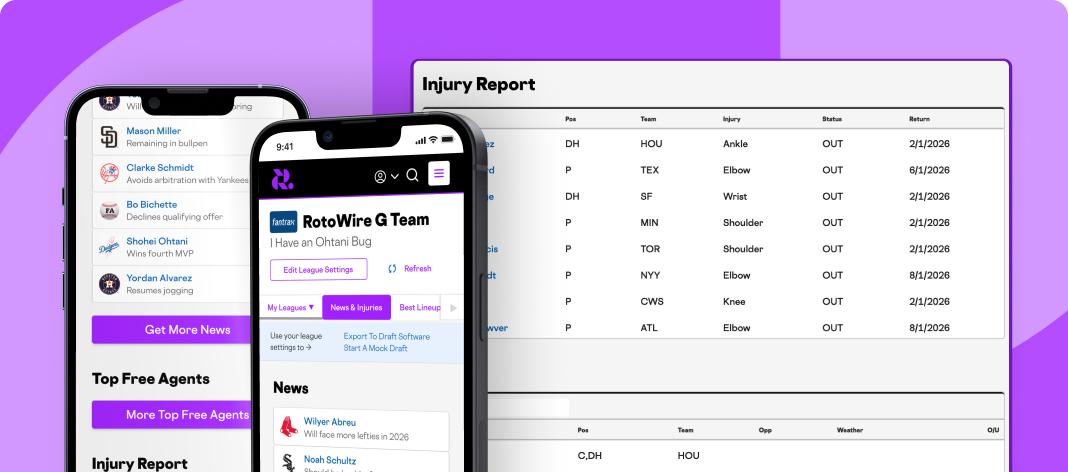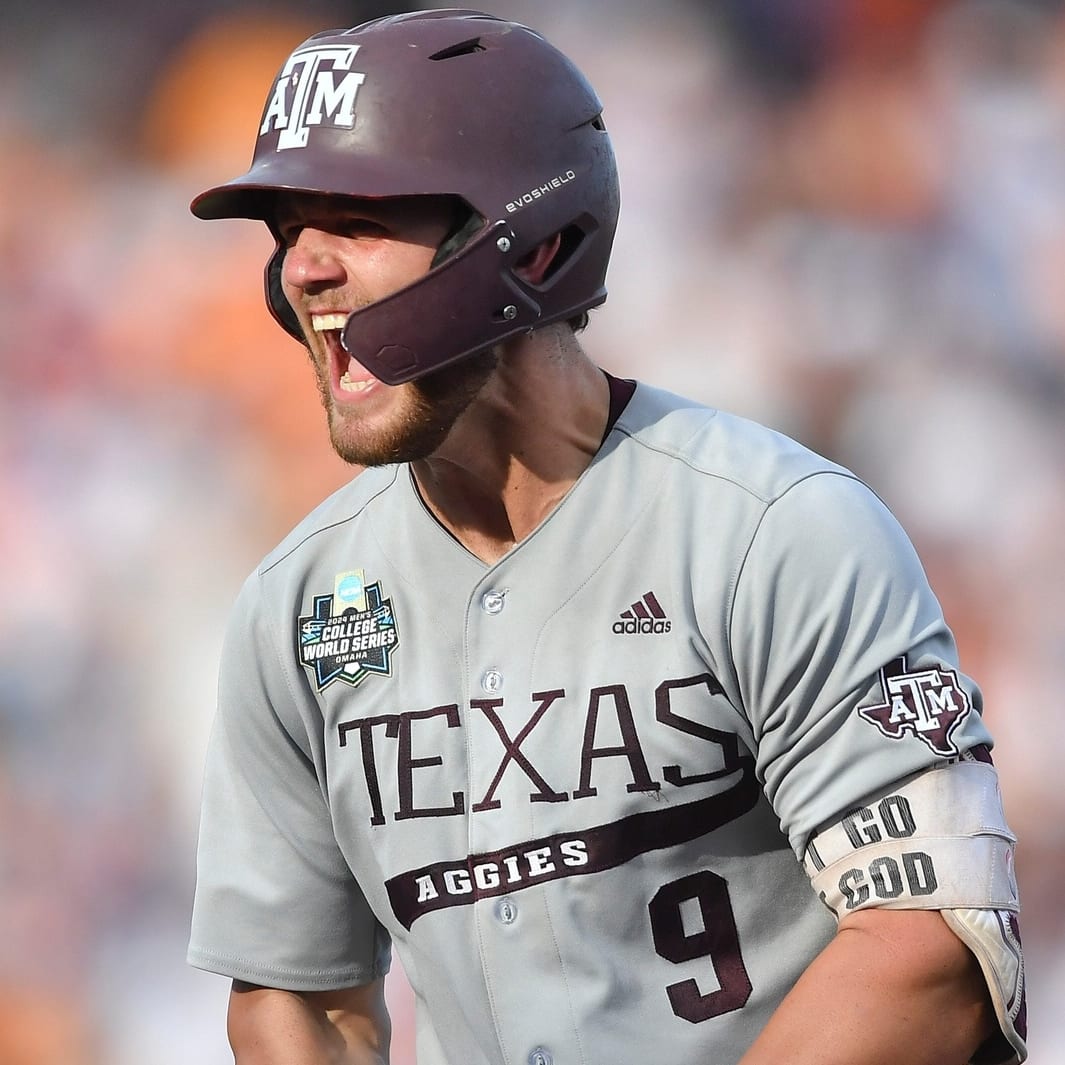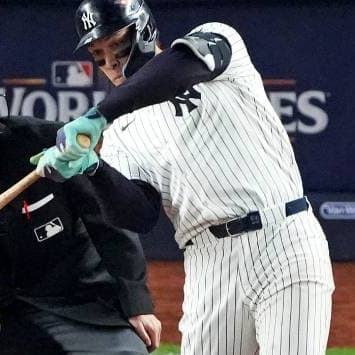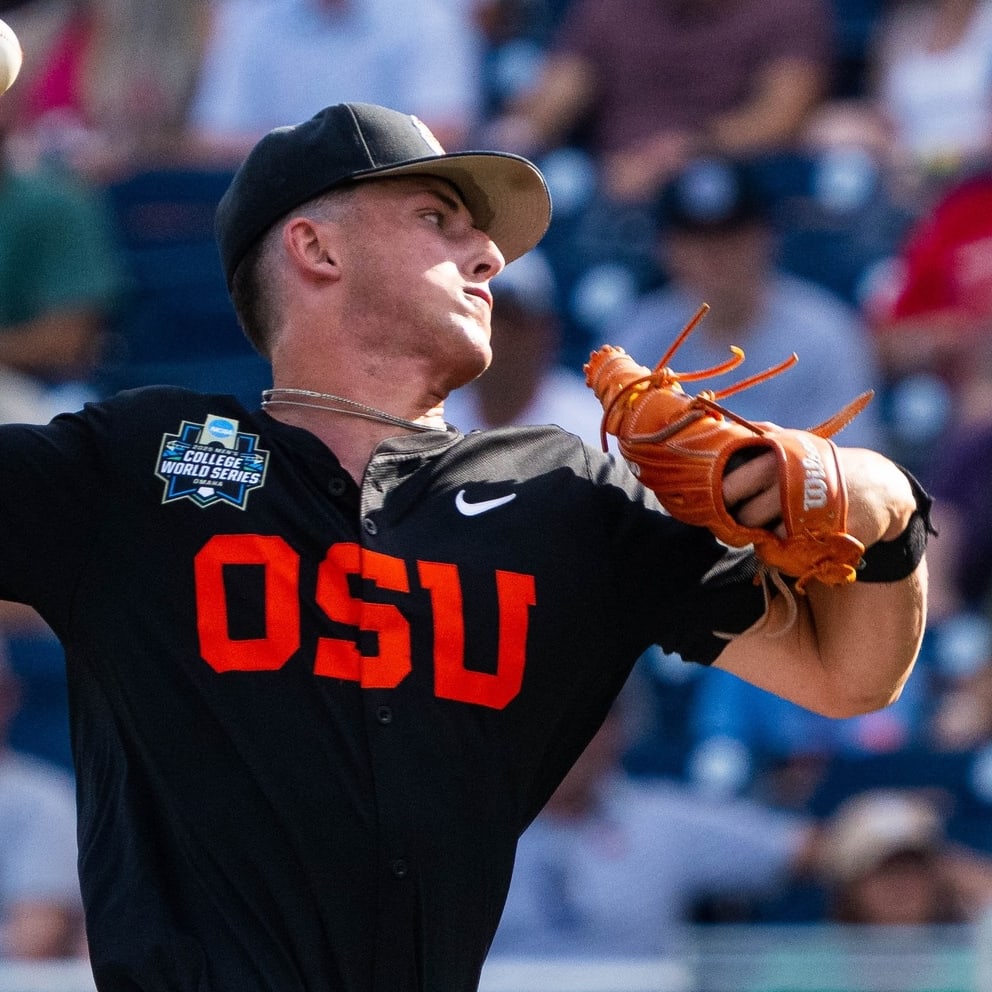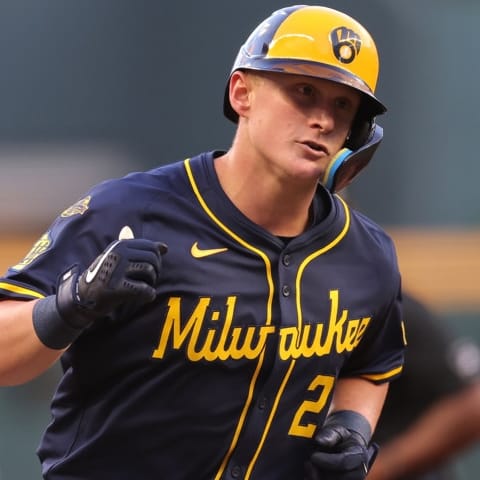Before each season over the last 21 years I've written a story at RotoWire with my best bets for the season-long win totals. I'm a big fan of the season win total bets ever since I started making them in person in Las Vegas back in the late 1990s (usually in the dingy Imperial Palace). I've used several concepts of sabrermetrical analysis to try to find teams that appeared to be good historical bets.
I've had a good track record, winning 56 of 101 (with one push) bets for a 55.4 percent win rate. My best bet each season is 19-15 (I had multiple biggest bets some years). I'm a little better on bets of $100 or more (I vary my bet size to emphasize how strongly I feel about the pick) where I'm 14-10 (58.3 percent). I'm most impressive when looking at the total amount bet, where I've been correct 59.9 percent of the time ($3,475 in winning bets, $2,325 in losers - not factoring in the vig*).
Last season may have been the toughest exercise in the past two decades. The abbreviated 2020 season due to the pandemic gave us a much smaller sample size for many of the sabermetrical theories I've used each season. I decided to steer into the uncertainty, making nine bets – the most ever for one season. That may have been a poor choice as I had perhaps my worst year going 3-6 and winning $75 and losing $275.
It doesn't get that much easier for 2022 since we're still factoring the shortened 2020 season into comparisons and we have another irregular offseason with the delayed start due to the lockout. Nevertheless, let's look at the 2022 season from a wagering perspective.
Here's my take on each team with more analysis below on those I selected as my "bets."
| Team | 2022 O/U | My Pick |
| Arizona Diamondbacks | 66.5 | Under |
| Atlanta Braves | 91.5 | Over |
| Baltimore Orioles | 61.5 | Under |
| Boston Red Sox | 85.5 | Under |
| Chicago Cubs | 74.5 | Over |
| Chicago White Sox | 92.5 | Under |
| Cincinnati Reds | 73.5 | Under |
| Cleveland Indians | 75.5 | Under |
| Colorado Rockies | 68.5 | Under |
| Detroit Tigers | 77.5 | Over |
| Houston Astros | 92.5 | Over |
| Kansas City Royals | 74.5 | Over |
| Los Angeles Angels | 83.5 | Over |
| Los Angeles Dodgers | 98.5 | Over |
| Miami Marlins | 77.5 | Over |
| Milwaukee Brewers | 89.5 | Over |
| Minnesota Twins | 81.5 | Over |
| New York Mets | 88.5 | Under |
| New York Yankees | 91.5 | Under |
| Oakland Athletics | 69.5 | Under |
| Philadelphia Phillies | 86.5 | Under |
| Pittsburgh Pirates | 64.5 | Under |
| San Diego Padres | 88.5 | Over |
| San Francisco Giants | 85.5 | Over |
| Seattle Mariners | 83.5 | Under |
| St. Louis Cardinals | 84.5 | Under |
| Tampa Bay Rays | 89.5 | Over |
| Texas Rangers | 74.5 | Under |
| Toronto Blue Jays | 92.5 | Over |
| Washington Nationals | 69.5 | Under |
For this exercise, I'm using odds from FanDuel sportsbook on April 1.
When I look at an upcoming baseball season, there are eight methods I use to judge which teams might be a good bet: Three are statistical, four are observations I've had watching the bookies set season-long lines for MLB and other sports and I'll also throw in a wild-card pick with no particular theoretical basis. Here's the breakdown on these theories and the teams I decided to actually wager on.
The Johnson Effect
The Johnson Effect argues that a team that scores more runs or allows fewer runs than most statistical formulas would suggest, is bound to regress the next season. For example, if one team scores more runs than sabermetrical formulas such as Runs Created or OPS might suggest, then it will score less the next season. The theory works based on the fact that sometimes a team has more success than it should just based on pure luck. A bad bounce here, a fluke play there — they can add up in one season and make a team look more powerful than it should be.
My favorite type of statistic for this analysis is a tool called the Pythagorean Theory. You probably learned the Pythagorean theory in trigonometry, but in baseball, it means that the ratio of a team's wins and losses will be similar to the relationship between the square of its runs scored and the square of its runs allowed. If the runs a team scores and gives up in any given season don't translate into the expected win total from the Pythagorean Theory, that means something odd took place that should turn around next season.
Using the Johnson Effect and applying the Pythagorean Theory, who looks like they'll rebound in 2022? Here are the top teams that should have had more or less wins based on their 2021 runs allowed/created than they actually tallied:
| Team | Pythagorean Wins |
|---|---|
| Arizona Diamondbacks | -9 |
| Toronto Blue Jays | -8 |
| New York Yankees | +6 |
| Seattle Mariners | +14 |
I usually like to look for teams that have a differential of ten or more games. Seattle stands out in this regard. In fact, a 14-win difference is the largest since I've been tracking this since 1999. There have been five teams that won more than ten games than expected by their Pythagorean win totals over that span. Those five teams averaged a decline of 5.74 wins the following season. The sportsbooks have the Mariners declining even more by 6.5 wins. Given that the Mariners are such an outlier, it warrants a bet. They also fit another theory as well, so we'll make a bet on Seattle later. No other teams on this list spark an interest in making a bet on this theory.
The Plexiglass Principle
This theory says that any team that improves dramatically in one season is likely to decline the next season. What teams made such dramatic moves from 2020 to 2021? [The win totals from 2020 are pro-rated from a 60-game season to 162-game season).
| Team | Wins Improvement |
|---|---|
| San Francisco Giants | 28.7 |
| Boston Red Sox | 27.2 |
| Seattle Mariners | 17.1 |
| Houston Astros | 16.7 |
| Milwaukee Brewers | 16.7 |
| Detroit Tigers | 14.0 |
The win improvements are going to be exaggerated with just a 60-game 2020 season, as any team can get hot or cold for two months. However, there are still some sizeable increases where this theory may apply. The improvements by the Giants and Red Sox last season would rank in the top ten largest improvements in the modern era. Since 1970, teams that have improved by 19 or more games declined by 7.34 wins the following season. The decline is even sharper for teams that have improved by 26 or more games (-9.93 games).
However, the sportsbooks agree that both the Giants and Red Sox are likely to decline. Boston is expected to win 6.5 fewer games. While the Red Sox signed Trevor Story, their team hasn't otherwise seen a significant influx of talent through free agency or expected prospects. Boston also looks set to get little from Chris Sale again as he was placed on the 60-day IL with a rib injury. As a result, I'll make a $25 bet the Red Sox win less than 85.5 games.
Seattle has a second metric pointing toward a regression this season. While the Mariners have added talent (Robbie Ray) and have top prospects ready to contribute or take a big leap (Julio Rodriguez, Jarred Kelenic, Logan Gilbert) the team may need to take a step back first. Given all the negative metrics, I'll bet $25 the Mariners win less than 83.5 games.
The Giants are expected to decline by 21.5 games. The decline is the most the sportsbooks are expecting a team to change in win totals since I started tracking this data in 2001 (The previous largest expected movement was the 2006 Cubs who the sportsbooks though would improve by 17.5 wins to 83.5 wins. The sportsbooks were right as the Cubs won 85 games in 2007.)
I'm not a big believer in San Francisco's ability to maintain anything close to the 107-win pace of last season. The Giants appeared to get lucky with several previously injury-plagued or unheralded starters (Kevin Gausman, Alex Wood, Anthony DeSclafani) along with surprising power from previous unexpected sources (Austin Slater, Darin Ruf, LaMonte Wade Jr., Alex Dickerson). Their team certainly has the look of a fluke. Previous teams that have been able to sustain large jumps in win totals have had rotations with young anchors (think 1990s Atlanta Braves and 1970s Oakland Athletics). The Giants would not appear to fit that mold. However, a decline of 21.5 games may be overdone. I'm actually inclined to bet the over of 85.5 wins, but I'll pass.
The Reverse Plexiglas Principle
When a team has consistently been a winner and then experiences a sudden drop, there is a strong likelihood that its win total will rebound. Or at least that's my theory.
| Team | Wins Decline |
|---|---|
| Oakland Athletics | -11.2 |
| Cleveland Indians | -14.5 |
| Arizona Diamondbacks | -15.5 |
| Baltimore Orioles | -15.5 |
| Miami Marlins | -16.7 |
| Chicago Cubs | -20.8 |
| San Diego Padres | -20.9 |
| Minnesota Twins | -24.2 |
The Twins and Padres and stand out. The Padres won a pro-rated 99.9 games in 2020 and were just four games out of first place in the NL West with a .605 winning percentage as late as July 23. However, their sharp decline may be more a byproduct of their 2020 pro-rated wins being 99.9, which may have been a product of the small sample size. The Padres have brought in more talent again (Luke Voit, Sean Manaea) and changed their manager (to Bob Melvin), though losing Fernando Tatis for perhaps half the season looms large.
The Twins are more a case of a team that took an unexpected decline last season, largely to a historically bad bullpen. They should bounce back with just average bullpen success. A signing of Carlos Correa would also point to an upswing, but they still lack starting pitching after last season's head-scratching trade of Jose Berrios. I'll pass making a bet on both teams, but I can easily make the case for the over for both.
The next thing I look at is what teams the bookies think will have the biggest improvement or decline.
The Bottom Feeder Bet
This is totally from a non-scientific study of watching the bookies set lines on expected wins over the years. People tend to care less about the bad teams in any sport, so the line is set a bit lower to entice folks to bet on these doormats.
| Team | Wins |
|---|---|
| Cincinnati Reds | 73.5 |
| Washington Nationals | 69.5 |
| Oakland Athletics | 69.5 |
| Colorado Rockies | 68.5 |
| Arizona Diamondbacks | 66.5 |
| Pittsburgh Pirates | 64.5 |
| Baltimore Orioles | 61.5 |
As bad as the Pirates are forecast to be in 2021, the sportsbooks have Pittsburgh improving by 3.5 games over the team's 2021. It's hard to see where any improvement comes from. Although the Pirates are ranked No. 7 in The Athletic's minor league system rankings from Keith Law, the Pirates have decided to keep top prospect Oneil Cruz in the minors to begin the season. Still, most of their best prospects are in the upper minors. And the division may be weaker with the Reds tanking and Cubs still not all-in.
I can easily see making a case for the under on the Orioles. They again are not really trying to win. And their pitching staff may be the worst in baseball again (30th last season with 5.9 runs allowed per game). And their top prospect Adley Rutschman is out until May or longer with a triceps injury. Most of their top prospects don't look ready to debut in 2022 and few are pitchers. The team hasn't won more than 60 games in a full season since 2017. And the AL East continues to be tough. I'll bet $25 the Orioles don't win more than 61.5 games.
The Book's Biggest Movers
Which teams do the sportsbooks think will make the biggest moves up this season?
| Team | Win Improvement |
|---|---|
| Texas Rangers | +14.5 |
| Arizona Diamondbacks | +14.5 |
| New York Mets | +11.5 |
| Miami Marlins | +10.5 |
| San Diego Padres | +9.5 |
| Baltimore Orioles | +9.5 |
| Minnesota Twins | +8.5 |
Those thought to decline the most:
| Team | Win Decline |
|---|---|
| Cincinnati Reds | -9.5 |
| Tampa Bay Rays | -10.5 |
| Oakland Athletics | -16.5 |
| San Francisco Giants | -21.5 |
The team that doesn't appear to fit is the Rays. Tampa Bay is coming off 100 wins and is perennially underrated. Other than Nelson Cruz (who was only there for 40 games), Tampa Bay has largely the same roster as last season. And any losses (Tyler Glasnow to injury) can more than be offset by improvements from their top young talent (Wander Franco, Josh Lowe, Vidal Brujan, Shane Baz when back from injury). Any team that wins 100 games should be expected to take a step back, but a double-digit decline appears too much. I'll bet $100 that Tampa Bay wins more than 89.5 games.
The Book's Non Movers
Conversely, who do the sportsbooks think will stay relatively the same?
| Team | Win Improvement | |
|---|---|---|
| Atlanta Braves | +3.5 | |
| Chicago Cubs | +3.5 | |
| Pittsburgh Pirates | +3.5 | |
| Toronto Blue Jays | +1.5 | |
| Detroit Tigers | +0.5 | |
| Kansas City Royals | +0.5 | |
| Chicago White Sox | -0.5 | |
| New York Yankees | -0.5 | |
| Houston Astros | -2.5 | |
The Tigers and Blue Jays would appear to be candidates to be better this season. Toronto should have been a 99-win team last season according to their Pythagorean win total and they at the least stood even on adding free agent talent (Kevin Gausman for Robbie Ray, Matt Olson for Marcus Semien) while benefiting from full seasons of Jose Berrios and Alek Manoah.
I'm very optimistic about the Tigers this season with so much young talent finally reaching the majors and ready for their debut or possibly a leap in growth in a second season (Spencer Torkelson, Tarik Skubal, Casey Mize, Matt Manning); along with Detroit spending big in free agency (Javier Baez, Eduardo Rodriguez). However, their 14.9 game improvement last season may have been a bit over their skis. Unlike Seattle, however, I don't think they'll regress. Still, Detroit's projected 77.5 wins from the sportsbooks looks fairly priced. A better route may be to bet them +550 to win the AL Central.
Wild Card
One theme I've come back to the last few years is to just bet against the teams clearly not trying. Whether it's trying to mimic the success of the 2016 Cubs and 2017 Astros who stripped their team down to the studs before rebuilding, or just cynical teardowns from owners content to just pocket revenue-sharing money (which the new CBA has not deterred), there's clearly a class of teams who simply are not trying and it's not likely they'll improve in the near term. The Red and A's are the two teams this year who've shifted to not trying by selling off veterans in the offseason. The Reds at least got some decent returns on trades and have some prospects who may immediately help (Hunter Greene, Nick Lodolo). Oakland on the other hand got meager returns in their trades without much, if any, immediate help. Both teams may trade more veteran talent during the season. Under bets on both are probably warranted. Oakland is seen declining by 16.5 games by the sportsbooks, but that may not be enough given their loss of talent (Matt Olson, Matt Chapman, Sean Manaea, Chris Bassitt). I'll bet $25 the A's win less than 69.5 games.
To recap, here are my over/under win total bets for 2022.
| Team | Bet | Theory |
| Oakland | $25 under on 69.5 wins | Wild Card |
| Tampa Bay | $100 over on 89.5 wins | Book Mover |
| Baltimore | $25 under on 61.5 wins | Bottom Feeder |
| Boston | $25 under on 85.5 wins | Plexiglas Principle |
| Seattle | $25 under on 83.5 wins | Plexiglas Principle |
*One note: My bets/track record doesn't account for the variations in extra juice you need to pay. Most lines are -110, meaning the sportsbook takes about five percent on each bet. The "vig" tends to be higher on these bets than for single games. Sometimes the vig can vary widely, such as when the 2016 Rangers' under of 83.5 wins was at -140 (the under was +110). It's another method for the bookmakers to alter how the money is coming in on each side so it gets to their comfort level. Or it's a way to change the odds without moving the win total.
If you are making a lot of bets, this is a serious factor in the math. But I don't bother to take that into account because I'm more focused on the overall wins number for a team perspective. Plus, I forgot to keep track of the vig in the early years.
I vary the dollar amounts below as a way to show how confident I am in the bet (the $300 bet on the 2004 Royals is my all-time high), so there are some holes in the math if you added in all the varying vigs.
And why should you care what I think? I've made money 12 of the last 20 years (with one push). Here's the breakdown:
| YEAR | W/L | TEAM | BET | THEORY |
|---|---|---|---|---|
| 2021 | Lost | Chicago White Sox | $50 under on 90.5 wins | Plexiglas Principle |
| 2021 | Lost | Washington Nationals | $25 over on 84.5 wins | Reverse Plexiglas Principle |
| 2021 | Won | Houston Astros | $25 over on 87.5 wins | Reverse Plexiglas Principle |
| 2021 | Lost | Detroit Tigers | $100 under on 68.5 wins | Bottom Feeder |
| 2021 | Won | Texas Rangers | $25 under on 66.5 games | Bottom Feeder |
| 2021 | Lost | Toronto Blue Jays | $25 under on 86.5 games | Book Non-Mover |
| 2021 | Lost | Minnesota Twins | $50 over on 88.5 wins | Book Mover |
| 2021 | Won | Tampa Bay Rays | $50 over on 85.5 wins | Book Mover |
| 2021 | Lost | Lost Angeles Dodgers | $25 under on 102.5 wins | Wild Card |
| 2020 | Lost | Chicago White Sox | $25 on less than 31.5 games | Book Mover |
| 2020 | Won | New York Yankees | $25 on less than 37.5 games | Wild Card |
| 2020 | Lost | Los Angeles Dodgers | $25 on less than 37.5 games | Wild Card |
| 2020 | Won | Tampa Bay Rays | $50 on more than 33.5 games | Wild Card |
| 2019 | Won | Kansas City Royals | $50 on less than 69.5 wins | Book Mover |
| 2019 | Lost | San Francisco Giants | $50 on less than 73 wins | Book Non Mover |
| 2019 | Lost | Texas Rangers | $25 on less than 70 games | Book Non Mover |
| 2019 | Won | Baltimore Orioles | $50 on less than 58.5 wins | Bottom Feeder |
| 2019 | Won | Washington Nationals | $25 more than 88.5 games | Reverse Plexiglas Principle |
| 2018 | Won | Arizona Diamondbacks | $100 to win fewer than 85 games | Plexiglas Principle |
| 2018 | Won | Detroit Tigers | $50 on less than 66.5 wins | Book's Non Movers |
| 2018 | Won | San Diego Padres | $25 on less than 72.5 games | Johnson Effect |
| 2017 | Won | Tampa Bay Rays | $50 win more than 78.5 games | Johnson Effect |
| 2017 | Lost | Pittsburgh Pirates | $100 win more than 82 games | Reverse Plexiglas |
| 2017 | Lost | Los Angeles Angels | $50 on less than 79 wins | Book's Non Movers |
| 2017 | Lost | Texas Rangers | $25 on win more than 84.5 games | Book's Biggest Movers |
| 2017 | Lost | Baltimore Orioles | $50 win more than 80 games | Wild Card |
| 2016 | Lost | Chicago Cubs | $25 win less than 93.5 games | Plexiglas Principle |
| 2016 | Lost | Milwaukee Brewers | $50 win less than 70 games | Bottom Feeder Bet |
| 2016 | Lost | New York Yankees | $25 win over than 85 games | Wild Card |
| 2015 | Lost | Houston Astros | $25 win less than 75.5 games | Plexiglas Principle |
| 2015 | Won | Los Angels Angels | $25 win less than 88.5 games | Plexiglas Principle |
| 2015 | Won | Texas Rangers | $25 win over than 76.5 games | Reverse Plexiglas Principle |
| 2015 | Lost | Boston Red Sox | $25 win over than 86.5 games | Reverse Plexiglas Principle |
| 2015 | Lost | Baltimore Orioles | $75 win over than 82.5 games | Book's Biggest Movers |
| 2015 | Won | Cincinnati Reds | $25 win less than 77.5 games | Book's Non Movers |
| 2015 | Won | Tampa Bay Rays | $50 win more than 78.5 games | Book's Non Movers |
| 2015 | Won | Oakland A's | $100 win more than 81.5 games | Billy Beane Theory |
| 2014 | Lost | Cleveland Indians | $25 win less than 82 games | Plexiglas Principle |
| 2014 | Won | Houston Astros | $25 more than 62.5 games | Bottom Feeder |
| 2014 | Won | Philadelphia Phillies | $50 under on 74.5 games | Book Non Mover |
| 2014 | Won | Oakland A's | $25 over on 86.5 games | Billy Beane Theory |
| 2014 | Lost | Tampa Bay Rays | $100 over on 89 games | Billy Beane Theory |
| 2013 | Won | Toronto Blue Jays | $50 under on 89 games | Book Mover |
| 2013 | Won | Oakland A's | $25 over on 84.5 games | Billy Beane Theory |
| 2013 | Won | Tampa Bay Rays | $50 over on 86.5 games | Billy Beane Theory |
| 2013 | Lost | Kansas City Royals | $50 under on 78.5 games | Billy Beane Theory |
| 2013 | Won | Baltimore Orioles | $25 over on 78.5 games | Wildcard |
| 2012 | Won | Arizona Diamondbacks | $200 under on 86 games | Plexiglas Principle |
| 2012 | Lost | Minnesota Twins | $100 over on 72.5 games | Reverse Plexiglas Principle |
| 2011 | Lost | Kansas City | $100 under on 68 games | Book Non Mover |
| 2011 | Won | Houston Astros | $50 under on 72 games | Johnson Effect |
| 2011 | Won | Milwaukee Brewers | $25 over on 86.5 games | Book Mover |
| 2011 | Lost | Los Angeles Angels | $50 under on 82.5 games | Wild Card |
| 2010 | Lost | Houston Astros | $150 under on 75.5 games | Johnson Effect & Book Non Mover |
| 2010 | Won | Minnesota Twins | $100 over on 82.5 games | Wildcard |
| 2010 | Won | Washington Nationals | $50 under on 72 games | Book Mover |
| 2009 | Lost | Los Angeles Angels | $50 under on 88.5 wins | Johnson Effect & Plexiglas Principle |
| 2009 | Won | Detroit Tigers | $50 over on 81.5 wins | Reverse Plexiglas |
| 2009 | Lost | Baltimore Orioles | $50 over on 72.5 wins | Bottom Feeder |
| 2009 | Lost | Kansas City Royals | $25 over on 76.5 wins | Book Non Mover |
| 2009 | Lost | Philadelphia Phillies | $50 under on 88.5 wins | Book Non Mover |
| 2009 | Lost | Oakland A's | $25 over on 82.5 wins | Billy Beane Theory |
| 2008 | Won | Seattle Mariners | $200 under on 84 wins | Johnson Effect |
| 2008 | Lost | Chicago Cubs | $50 under on 87.5 wins | Plexiglas Principle |
| 2008 | Won | Oakland A's | $50 over on 73.5 wins | Reverse Plexiglas Principle |
| 2008 | Push | San Francisco | $50 under on 72 wins | Book Non Mover |
| 2007 | Won | Cleveland Indians | $50 over on 85.5 wins | Johnson Effect |
| 2007 | Lost | Chicago Cubs | $50 under on 83.5 wins | Book Mover |
| 2007 | Lost | Oakland A's | $50 over on 85.5 wins | Book Mover |
| 2007 | Lost | Minnesota Twins | $100 over on 84 wins | Book Mover |
| 2007 | Won | Arizona Diamondbacks | $100 over on 78.5 wins | Book Non Mover |
| 2006 | Won | Chicago White Sox | $100 under on 92 wins | Johnson Effect & Plexiglas Principle |
| 2006 | Lost | Arizona Diamondbacks | $25 under on 73 wins | Johnson Effect & Plexiglas Principle |
| 2006 | Lost | Tampa Bay Devil Rays | $100 over on 68 wins | Bottom Feeder |
| 2006 | Lost | Milwaukee Brewers | $50 over on 81 wins | Book Non Mover |
| 2006 | Won | Minnesota Twins | $50 over on 83 wins | Book Non Mover |
| 2005 | Won | New York Yankees | $150 under on 102 wins | Johnson Effect |
| 2005 | Won | Milwaukee Brewers | $50 over on 69.5 wins | Bottom Feeder |
| 2005 | Won | San Diego Padres | $25 under on 86.5 wins | Plexiglas Principle |
| 2005 | Lost | Minnesota Twins | $25 over on 89.5 wins | Book Non Mover |
| 2004 | Won | Kansas City Royals | $300 under on 81 wins | Plexiglas Principle |
| 2004 | Won | Houston Astros | $50 over on 91 wins | Johnson Effect |
| 2004 | Lost | Detroit Tigers | $100 under on 66.5 wins | Book Mover |
| 2004 | Won | San Francisco Giants | $50 over on 85 wins | Book Mover |
| 2004 | Won | Florida Marlins | $50 over on 83 wins | Book Mover |
| 2003 | Won | Anaheim Angels | $100 under on 91 wins | Plexiglas Principle |
| 2003 | Won | Oakland A's | $50 over on 93.5 wins | Book Mover |
| 2003 | Won | New York Mets | $50 under on 86 wins | Book Mover |
| 2003 | Won | Toronto Blue Jays | $50 over on 79 wins | Book Non Mover |
| 2003 | Won | Boston Red Sox | $50 over on 91 wins | Johnson Effect |
| 2002 | Won | Oakland A's | $200 over on 90.5 wins | Book Mover |
| 2002 | Won | Philadelphia Phillies | $100 under on 82.5 wins | Plexiglas Principle |
| 2002 | Won | Pittsburgh Pirates | $50 over on 68 wins | Bottom Feeder |
| 2002 | Lost | Seattle Mariners | $50 over on 94 wins | Reverse Plexiglas Principle |
| 2002 | Lost | Colorado Rockies | $50 over on 77 wins | Johnson Effect |
| 2002 | Lost | New York Yankees | $50 under on 99 wins | Reverse Bottom Feeder |
| 2001 | Lost | St. Louis Cardinals | $100 under on 89.5 wins | Plexiglas Principle |
| 2001 | Won | Chicago White Sox | $100 under on 88 wins | Plexiglas Principle |
| 2001 | Won | Houston Astros | $100 over on 82.5 wins | Johnson Effect & Plexiglas Principle |
| 2001 | Won | Philadelphia Phillies | $25 over on 74.5 wins | Bottom Feeder & Johnson Effect |
| 2001 | Won | Minnesota Twins | $25 over on 73 wins | Bottom Feeder |
| 2000 | Won | Arizona Diamondbacks | $100 under on 93 wins | Plexiglas Principle |
| 2000 | Won | Minnesota Twins | $100 over on 64 wins | Bottom Feeder |





